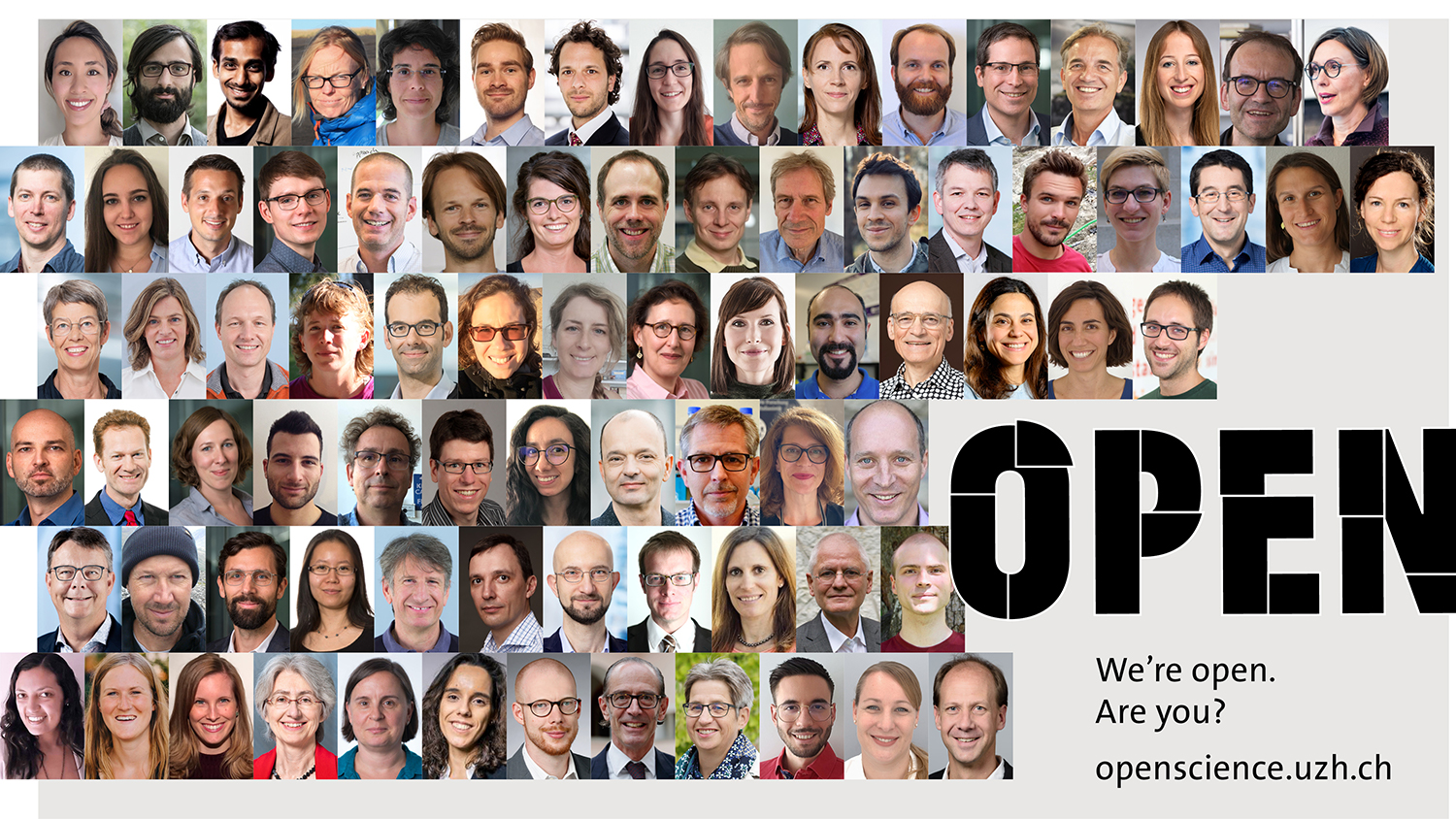Open Science Requires a Cultural Transformation
If anyone still harbors any doubts about the importance of open access and open science, let the COVID-19 crisis serve as a teaching moment. “The pandemic, like no other incident, has really brought home the value of open science,” say Katherine Hermans and Manuela Höfler, the co-heads of the Open Science Office at UZH.
Confronted with the novel pandemic virus, scientists around the world made their research findings public as quickly as possible on preprint servers like bioRxiv and medRxiv ahead of the customary peer review process, and leading professional journals released their articles at the same time. This enabled medical professionals and the research community to discuss the latest insights, thus accelerating the implementation of containment measures to get the pandemic under control as quickly as possible.
Open Science Office
The University of Zurich has been advocating for open access since 2003 and is giving the issue a further boost in collaboration with swissuniversities and the Swiss National Science Foundation (SNSF). At the Main Library of UZH, a team headed by Andrea Malits is devoting its efforts to the subject of data services and open access. A year ago, the Executive Board of the University appointed statistical genomics professor Mark Robinson and Swiss criminal law professor Marc Thommen to serve as open science delegates. Manuela Höfler and Katherine Hermans were put in charge of the Open Science Office, which is attached to the Office of the Vice President Research, at the start of 2020.“Our job is to facilitate the evolution toward transparent, cooperative research in the spirit of open science at UZH,” explain Hermans and Höfler.
Hermans originally worked as a journalist and later founded the Global Changemakers organization, which is committed to supporting youth-led social projects around the world. Manuela Höfler was formerly the head of communications at the Swiss Federal Archives, which set up Switzerland’s national open government data portal. Their work as the co-heads of the Open Science Office at UZH naturally also has to do with establishing open access to scientific publications and data. Open science, however, is broader in scope and encompasses additional domains that all pursue the aim of fostering the greatest possible fair exchange of methods and resources. Those domains include issues such as FAIR data, research integrity and citizen science.
Fundamental change
“There’s really nothing controversial about open science,” says Katherine Hermans. But putting it into practice in the university’s daily operations is easier said than done. It requires four steps that are each hardly spectacular when viewed separately, but which profoundly change science when they are added together. It starts with choosing the right open access journals and continues with editing the raw data or collaborating in networks. The requirements and specifications differ from one specialist field to the next. Open science, however, also has to do with education, the assessment of academic careers, and academic appointment and promotion practices, as stated in the 2012 San Francisco Declaration on Research Assessment (DORA), to which UZH became a signatory in 2014.
The declaration recommends a comprehensive assessment of a scientist’s research output. In the hiring process, for example, the declaration recommends paying less attention to lists of published papers and publications in high-impact journals and instead placing greater weight on soft factors and teaching quality. Such changes take time. “We are in the midst of a cultural transformation that we would like to further advance,” says Manuela Höfler.
New website and policy
The campaign is being launched by the Main Library and the Open Science Office in conjunction with the start of International Open Access week. Almost a hundred members of the UZH community are involved in the “We ’re open. Are you?” campaign aimed at raising public awareness about the objectives of open access. The office will provide information on open science activities and resources at UZH on its website, www.openscience.uzh.ch, which went live last week.
In addition, the newly formed cross-faculty UZH Open Science Committee will hold its inaugural meeting during Open Access Week. It plans to draft a formal policy slated to be instituted in the first half of 2021 that includes rules for researchers regarding publishing, for example. “The policy serves to make the objectives of open science more binding,” the co-heads explain, adding that “a lot is already being done at the University of Zurich, and we would like to interlink those activities and help close any gaps wherever they still exist.” Because, they say, it’s important to actively support researchers in implementing these changes in scientific practice.
